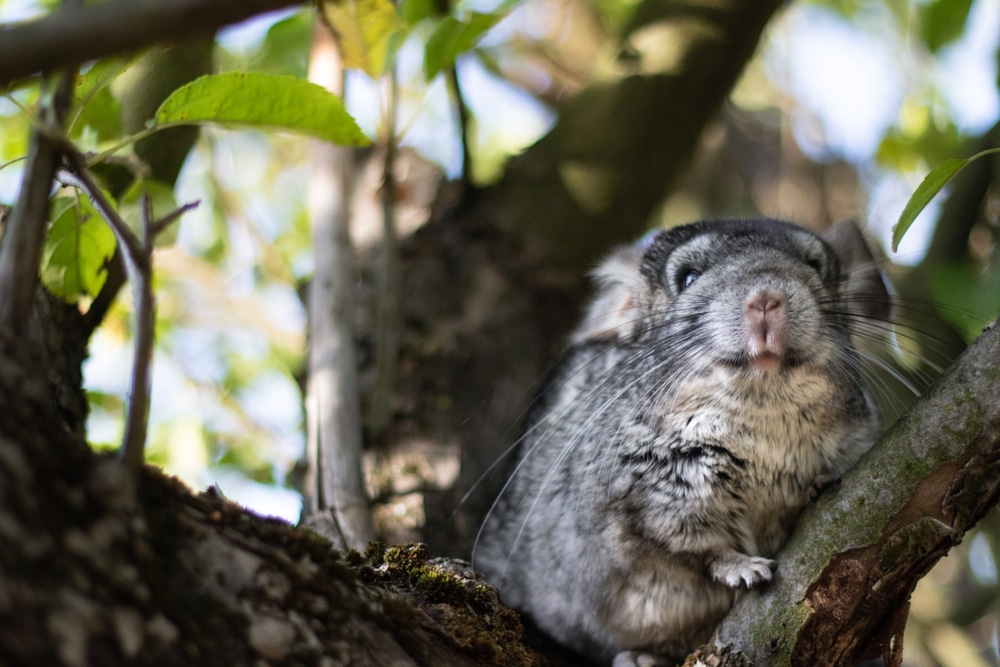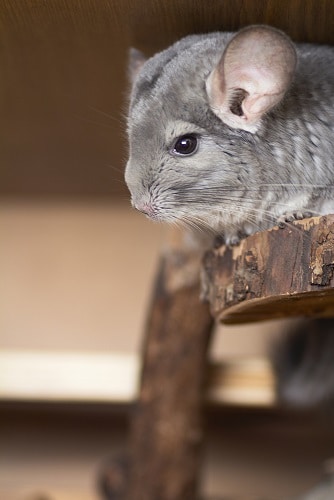
Although chinchillas are typically simple and adorable pets to care for, there are specific risks associated with them that should never be ignored. Some contagious illnesses rapidly progress and can even kill your chinchilla in rare scenarios.
However, this is not to alarm or disturb you but to help you understand how crucial it is to take notice of your chinchilla’s movements and routine. This enables you to identify issues early when it is still possible to repair them.
Following is the crucial information you need regarding your chinchilla’s well-being.
Chinchilla Ears Down
Many things can cause a chinchilla’s ears to be down, which is a significant concern for most chinchilla owners. However, as the parent of a chinchilla, the most vital point for you to watch out for is that its ears do not stay down for an extended period.
Ears down can be a sign of disease or other issues, and you should be aware of everything related to your pet. As a chinchilla, you should have all the information you can get about them to ensure their health and well-being.
To make sure you understand fully, here are all the reasons that could cause your chinchilla to bring their ears down:
1. Sleepiness Or Relaxation
The first explanation for your chinchilla’s ears being down is feeling relaxed or sleepy. Although there is no reason to be worried, it is a cause you want to see sometimes.
Chinchillas often lie down with their ears down to unwind and relax, which is very typical. However, if you start to see that your chinchilla’s ears are down when it is not unwinding, sleeping, or relaxing, you may have a bigger problem to be concerned about.
2. Indicating Fear
Fear contributes to the chinchilla’s ears being down in the initial weeks after the adoption. Even while you don’t endanger their security, that doesn’t mean they don’t occasionally feel frightened. They are unaware that you don’t initially present a threat.
Because the chinchilla is still adjusting to its new surroundings, this only happens typically in the first few weeks after you take it home. Distraction, loud noises, or anyone surrounding or chasing the chinchilla around to get it into or out of the cage are the most likely causes.
If your chinchilla can’t settle down and its ears are down, they are signaling you that they are terrified, ignoring which can lead to more significant problems.
The terrify can sometimes result in problems like overheating, which can quickly result in a chinchilla’s demise.
If you notice the chinchilla’s ears are drawn back and think fear is the cause, do all in your power to engage your chinchilla calmly and try to calm it down and gain its trust.
In the first few weeks, you should minimize playtime as your chinchilla adjusts to you and the environment and develops a connection and trust with yourself alongside the other family members.
3. Medical Issues
Ears down for prolonged periods indicate that you should get veterinary advice as soon as possible.
However, it is often challenging to identify the exact ailment that may lead them to experience pain, have their ears back, or act extra lethargic. It can be something minor, like indigestion or stomach pain, or something more serious, like tooth decay or an infection.
In other words, seek the advice of a veterinarian to assist you in understanding the scenario and determine the best solutions for the condition if it is something you haven’t yet previously seen and something seems awry with your chinchilla.
What To Do When Your Chinchilla’s Ears Are Down?
Bring the chinchilla in for an examination at the veterinarian if you cannot identify any clear reasons for stress. Although ear position occasionally suggests disease, it’s vital to take other things into account as well.
Pay attention to its other actions to determine if your chinchilla is ill or just calm.
How To Clean Your Chinchilla’s Ears?
Chinchillas are prone to various ear issues, such as allergies, parasites, and wounds. Thankfully, there are several easy things you can take to assist in maintaining the health of your chinchilla’s ears and stop issues from occurring.
Just working on the following simple steps can significantly help you keep your chinchilla’s ears clean and secure:
- The cage of your chinchilla should first always be kept clean. Any dirt or debris that could collect in the ears and irritate them will be helped to be removed by doing this.
- Second, make sure your chinchilla has access to lots of hay. Hay offers necessary nutrients that support general health and aid in maintaining clean, dry ears.
- Last but not least, remember to periodically check your chinchilla’s ears for any indications of redness or swelling. Be careful to contact your veterinarian immediately if you detect any changes.

